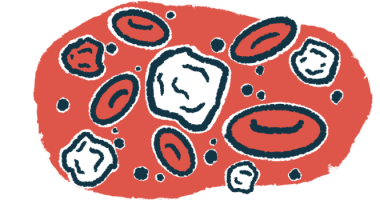Approved Treatments for Scleroderma
Actemra
Actemra (tocilizumab) is approved to treat systemic sclerosis-associated interstitial lung disease. It works by directly blocking the action of interleukin-6. Interleukins are proteins that white blood cells produce to regulate the immune response.
Angiotensin 2 Receptor Antagonists
Angiotensin 2 receptor antagonists or blockers are a group of medications that help dilate blood vessels to lower blood pressure. They are used for treating high blood pressure, heart failure, and Raynaud’s phenomenon, a common symptom of scleroderma.
ACE Inhibitors
Angiotensin 2 receptor antagonists (ACE) inhibitors are a type of medicine that prevents the production of a hormone, called angiotensin 2, by blocking the action of the angiotensin-converting enzyme. They are used for treating high blood pressure, heart failure, and Raynaud’s phenomenon.
Anti-fibrotic Medications
Anti-fibrotic medications work to reduce the formation and buildup of scar tissue in scleroderma patients. While these medications may slow or partially reverse organ damage caused by fibrosis, they cannot halt fibrosis or scar tissue buildup.
Anti-malarial Medications
Anti-malarial medications may be helpful in managing the symptoms of both systemic and localized scleroderma. These therapies work to modulate the immune system. First used to treat systemic lupus erythematosus, they are known to be effective in treating connective tissue diseases.
Calcium Channel Blockers
One of the first-line medications prescribed to treat scleroderma and Raynaud’s phenomenon are calcium channel blockers, which are a type of vasodilator therapy. They act to relax the walls of the blood vessels, opening them and improving blood flow. They also help relax the muscles of the heart.
Corticosteroids
Corticosteroids are immune-suppressing medications that reduce the inflammation present in active scleroderma lesions, and slow the progression of scar tissue formation by preventing the immune system from mistaking healthy tissue as foreign and attacking it.
COX-2 Inhibitors
COX-2 inhibitors are a type of anti-inflammatory agent that may be prescribed to treat disease symptoms, such as the joint and tendon pain, in scleroderma patients. They are a subset of non-steroidal anti-inflammatory drugs that act specifically on the enzyme cyclooxygenase-2, or COX-2.
Immunosuppressants
Immunosuppressants are a type of medication that help reduce the symptoms of scleroderma. They act to reduce or prevent the immune response from occurring. Immunosuppressants are not specifically approved to treat scleroderma, but they are often prescribed off-label.
IP Receptor Agonists
Scleroderma can damage the lungs in such a way that a patient also may develop pulmonary arterial hypertension (PAH) as a related condition. IP receptor agonists can help to manage PAH symptoms by widening the arteries and reducing the resistance to blood flow.
Narcotic Analgesics
In cases where over-the-counter pain medications such as Tylenol (acetaminophen) are insufficient, narcotic analgesics may be prescribed to alleviate severe pain in scleroderma patients. These therapies act to decrease pain signaling in the nervous system.
Treatments for Scleroderma-related Conditions
In more severe cases of scleroderma, scarring can damage organs in ways that lead to the patient developing one or more related conditions. A variety of treatments are available to treat these coexisting conditions.






